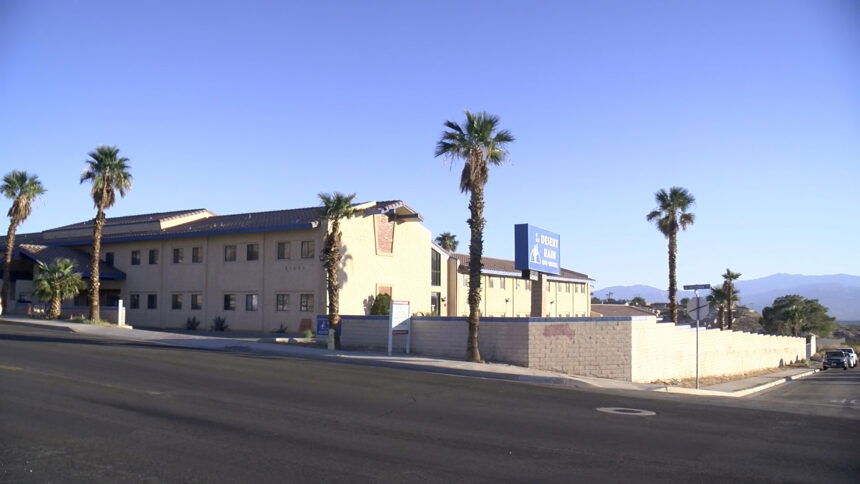Desert Hot Springs City Council upholds decision to deny zoning for inmate reentry facility

The Desert Hot Springs City Council unanimously voted to uphold the planning commission's original ruling to deny zoning to turn an old spa into a reentry facility for inmates to finish their sentences.
This dates back to July 22, 2020, when Upward Housing, LLC requested a zoning determination for the acquisition of the abandoned Desert Rain Spa Hotel located at 67485 Hacienda Avenue.
Upward Housing planned to turn the building into a California Department of Corrections and Rehabilitation’s (“CDCR”) Male Community Reentry Program.
According to Alfred Fraijo Jr, an attorney representing Upward Housing, the building would house male inmates who are serving out the rest of their sentences. The facility would house inmates with 15 months or less left on their sentences who need counseling and/or treatment with psychological problems, addictions, learning disabilities, to aid in their reentry to society.
Previously, the project was incorrectly referred to as a home for parolees/probationers, but according to Fraijo, parole/probationer housing refers to participants for supervised custody.
In August, the planning director determined that the building in a "Visitor-Serving Commercial zone" meaning an area primarily designed for tourists and visitors. The city determined that turning the old spa into a parolee/probationers home was not permitted.
Upward Housing appealed the decision Tuesday night during the city council meeting, arguing that the reentry facility is consistent with the definition of a "social services facility," which the company argued included residential facilities in its definition.
Councilmember Gary Gardner argued that the facility does not meet the definition of "social services," as it is inmates. The city had made a correction to the definition back in September which removed the words residential from "social services facilities." This means the city defines social services as "non-residential facilities providing assistance, etc."
Mayor Pro-Tem Robert Griffith said the decision to change the definition was to prevent conversion of the "hot water zone" into residential facilities like senior living facilities as had happened in the past.
Fraijo argued that reversing the commission's decision in order to avoid a violation of the applicant's property rights. He also argued that upholding the zoning decision would be a violation of the Housing Accountability Act which "prohibits local agencies from denying or conditioning a housing or emergency shelter without findings based on substantial evidence."
Gardner also disagreed with Fraijo's argument that the decision is a violation of the applicant's property rights as the company has not completed the purchase or obtained any building permits.
Multiple residents, particularly those who live near the property, called and wrote into Tuesday's meeting arguing against overturning the decision for a number of reasons, including concerns of having inmates close to residences.
All five councilmembers heard arguments for and against the proposal in a discussion that lasted a little over an hour before unanimously voting to uphold the planning commission's original ruling.